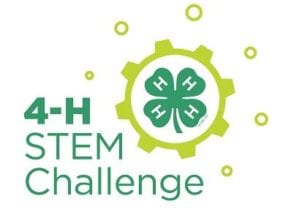Clemson University will be taking youth across the country on a guided tour of outer space — virtually, of course — after being chosen to lead the design of this year’s 4-H STEM Challenge.

Heading into its 14th year, the 4-H STEM Challenge is 4-H’s annual initiative to inspire students to take an interest in science, technology, engineering and math (STEM). Each year, National 4-H Council chooses a topic — space exploration for 2021 — and coordinates with university and corporate partners to develop a fun, hands-on challenge activity.
This year, Clemson was the the land-grant institution selected to partner with the National 4-H Council to lead the design of the Challenge, a kit-based program packed with learning opportunities, which reaches more than 300,000 kids across all 50 states annually.
“Our goal is to give as many kids as possible that a-ha moment where they realize STEM can be exciting and approachable, and that they don’t need to be a genius or a math whiz to get involved,” State 4-H Youth Development Assistant Director Ashley Burns said.
Burns said the good news came via a call from Jennifer Sirengelo, National 4-H Council CEO, to announce that Clemson was the unanimous choice to be the design lead along with a $50,000 award.
Land-grant universities from across the nation are eligible to submit proposals to National 4-H Council, the organization’s non-profit partner at the national level, and the Council works with industry and corporate leaders to promote 4-H initiatives.
“National 4-H Council received eight strong proposals from land-grant universities across the country, making it challenging to select just one,” Burns said. “However, after an exhaustive review process conducted by representatives from Council, our team was selected as ideal partners for the 2021 STEM Challenge based on our ability to deliver activity concepts that are fun, easy to facilitate and highly adaptable.”
Building off the success of last year’s Mars Base Camp theme, the 2021 challenge will cover many aspects of space exploration such as the history of humans in space, the technology and resources that enable off-planet missions and the obstacles humans encounter in orbit. Activities in development will touch on important STEM topics ranging from physics and engineering to computer science and space agriculture.
Burns said S.C. 4-H agents have done an incredible job creating and adapting programming during the COVID-19 pandemic, which played a major role in Clemson’s winning proposal.
“Agents have embraced multiple ways to reach new and existing audiences with web-based programs, social media-based delivery, learning kits and physical lessons, and self-paced learning. Clubs, camps, conferences, trainings and more carried on.”
As an example, South Carolina 4-H agents in the midlands region of the state received a national award for their efforts with 4-H @ Home — a rapidly launched distance-learning program that reached over 2,500 youth across 46 states, eight countries and a U.S. territory.
The members of Clemson’s 4-H STEM Challenge design team include: Burns and S.C. 4-H agents Abigail Phillips, Meghan Barkley, Rosemary Martin-Jones, Dawn Stuckey, Terri Sumpter and Patricia Whitener, along with David Connick (Clemson faculty in Astronomy and Physics), Jeff Fellers (Clemson Extension Forestry and Natural Resources Agent), Katie Glenn (Clemson student and 4-H alumna) and 4-H’ers Jeremiah Gonzalez, Carson Marino, Daniel Marino and Katie McCarter.
Get in touch and we will connect you with the author or another expert.
Or email us at news@clemson.edu

